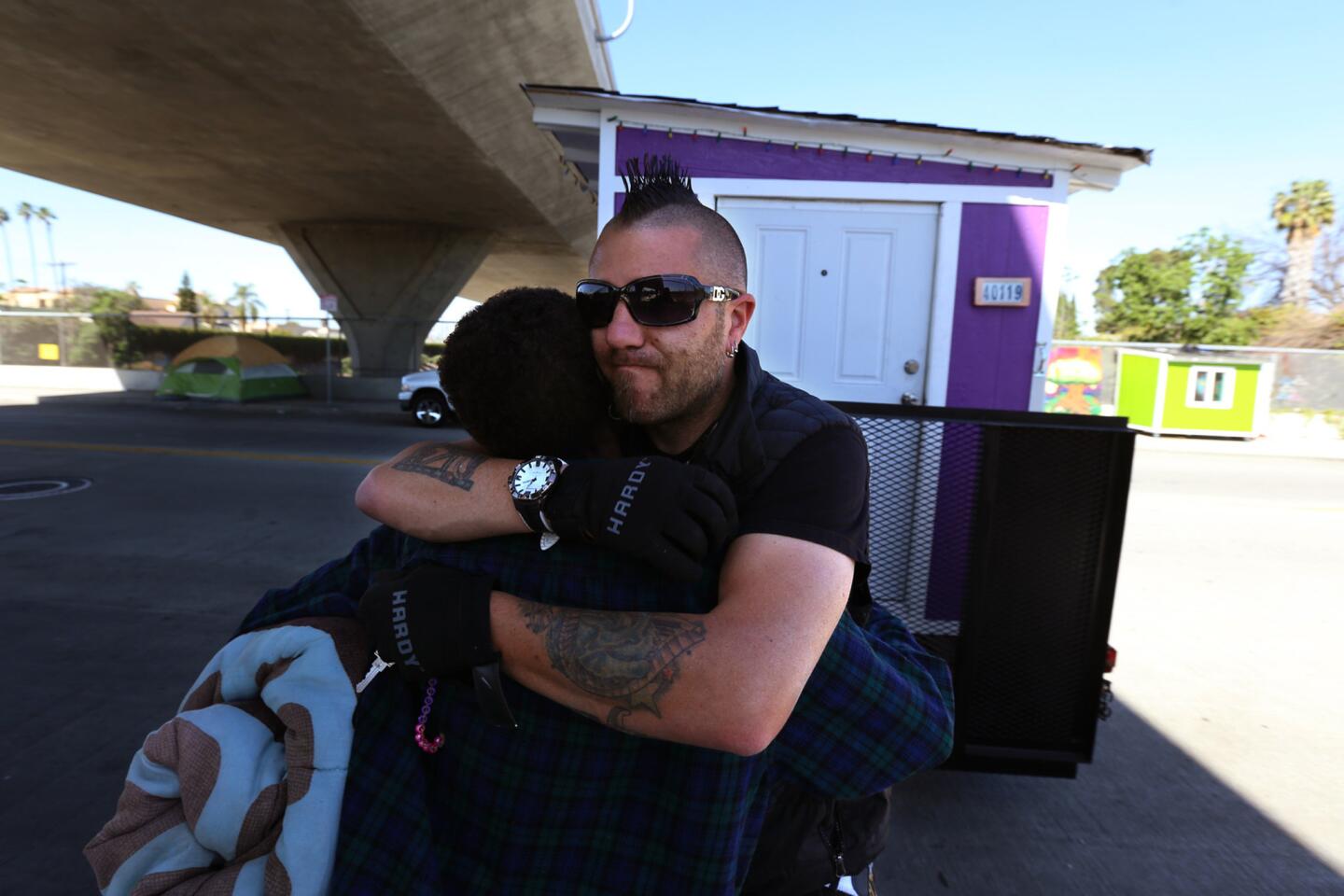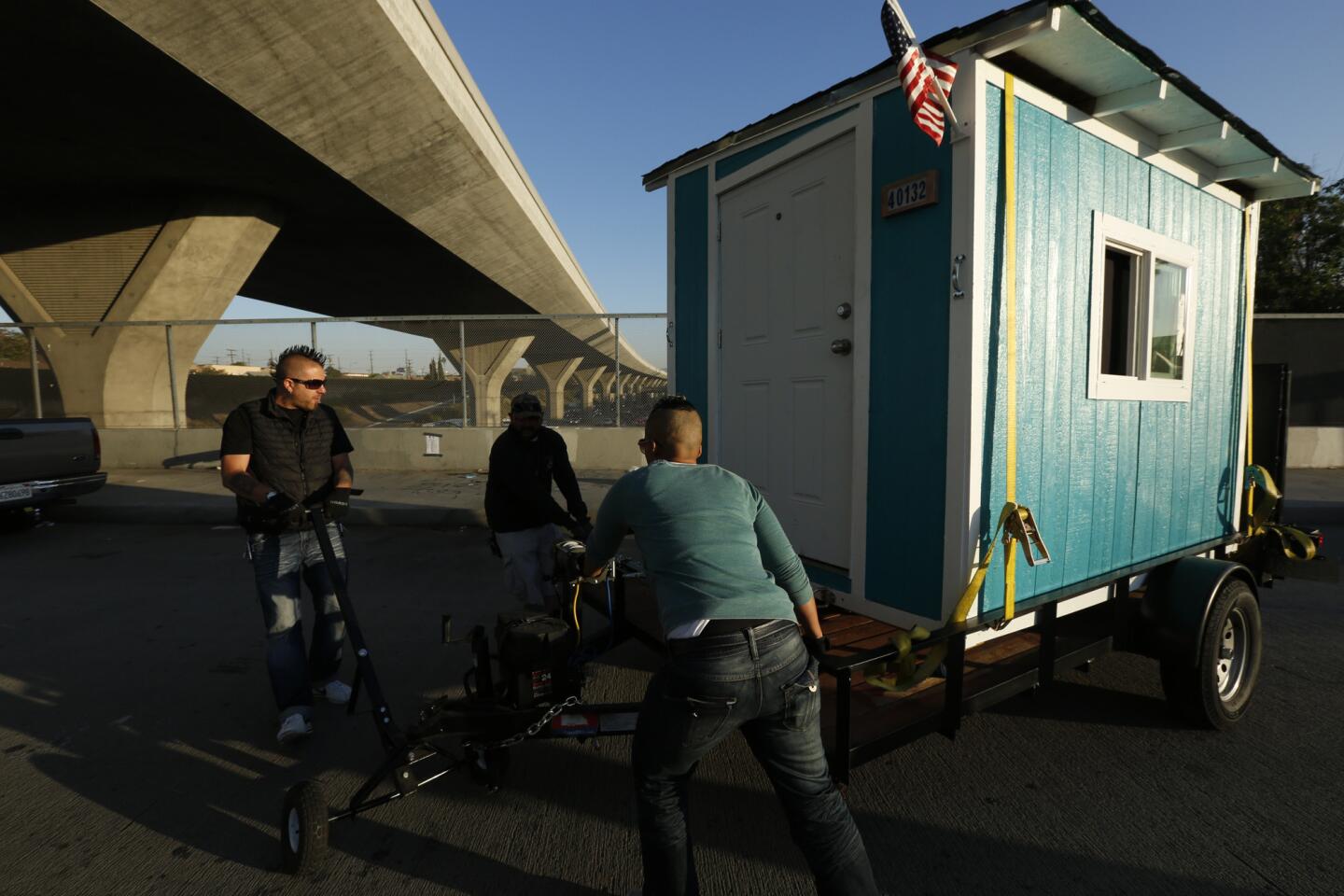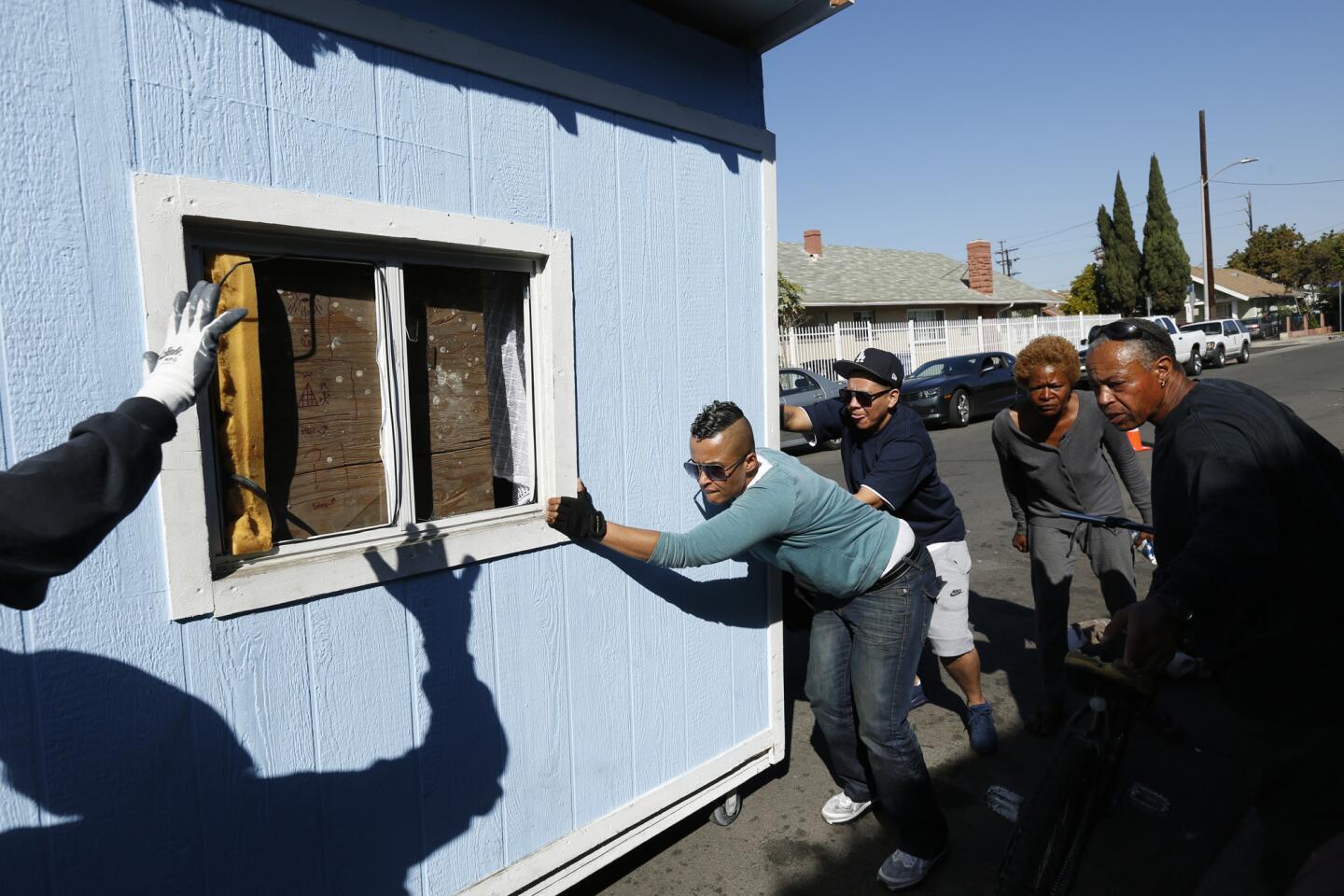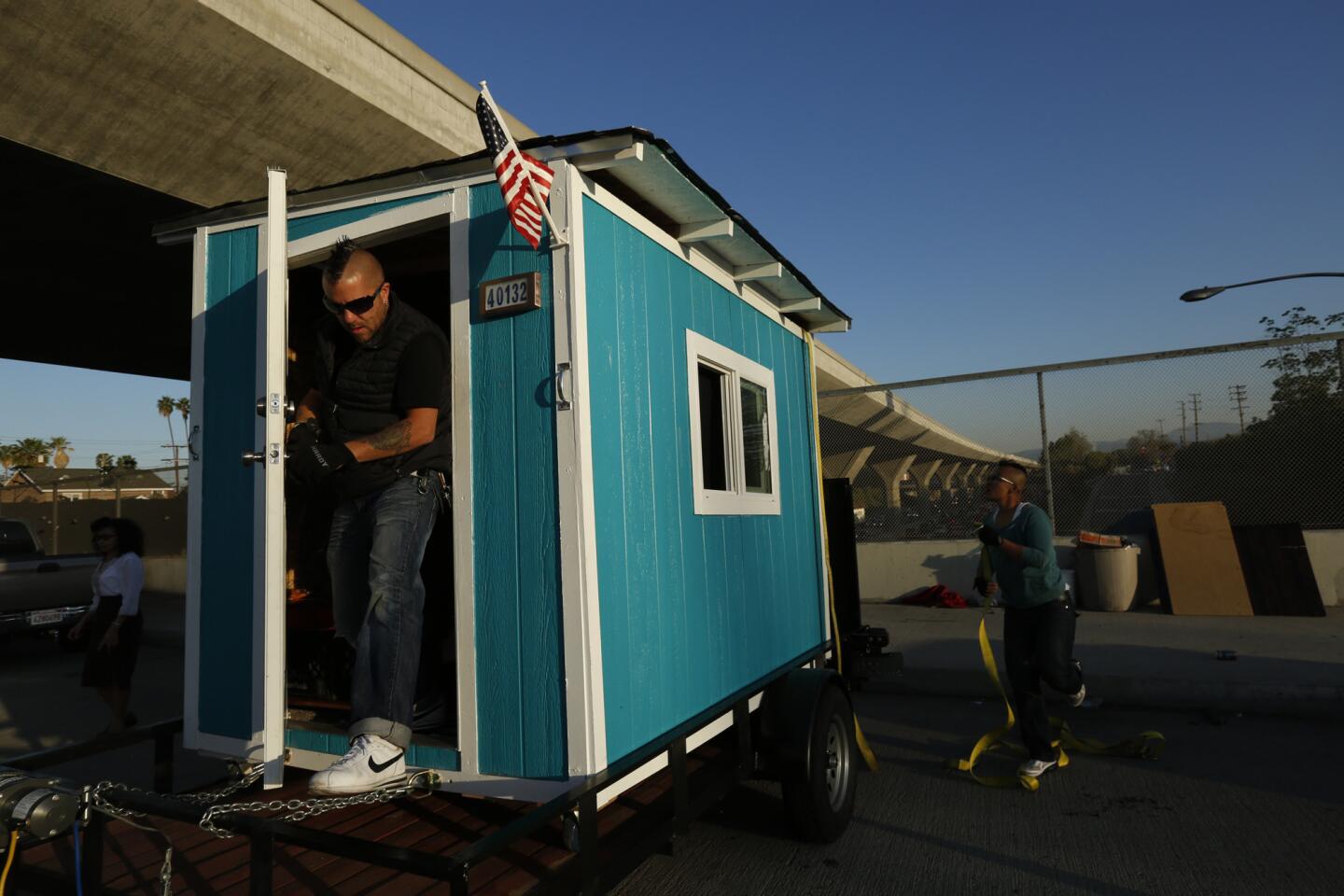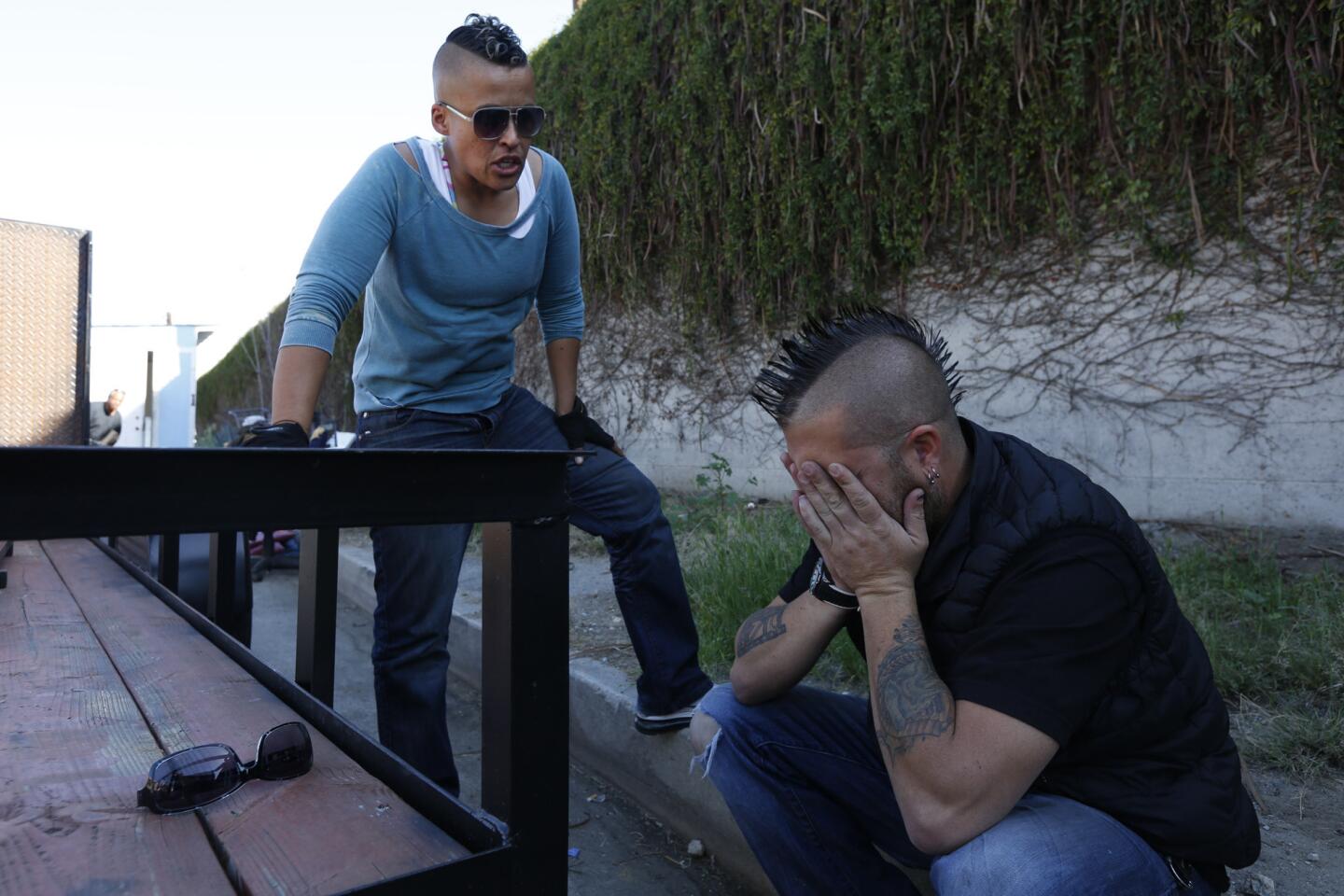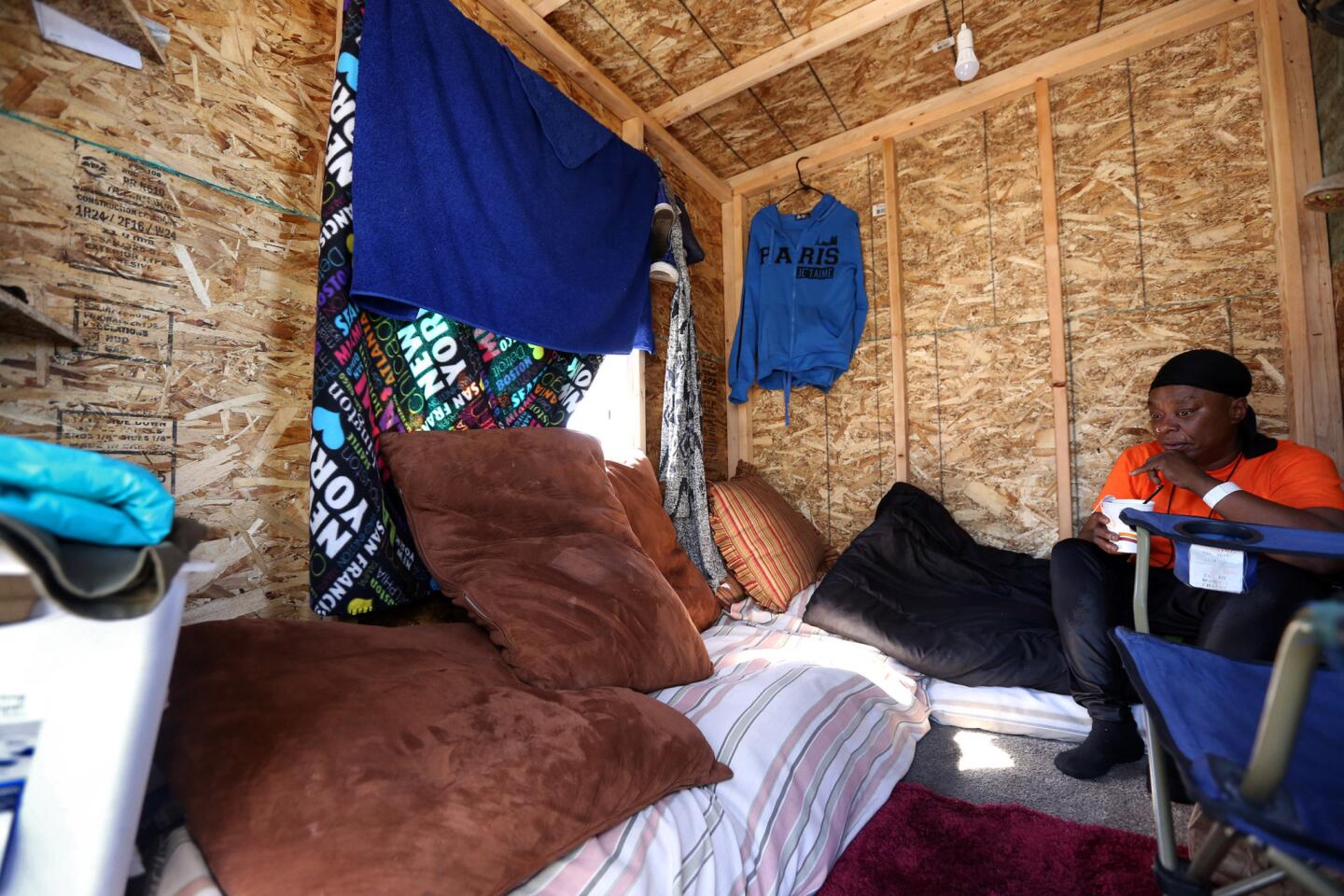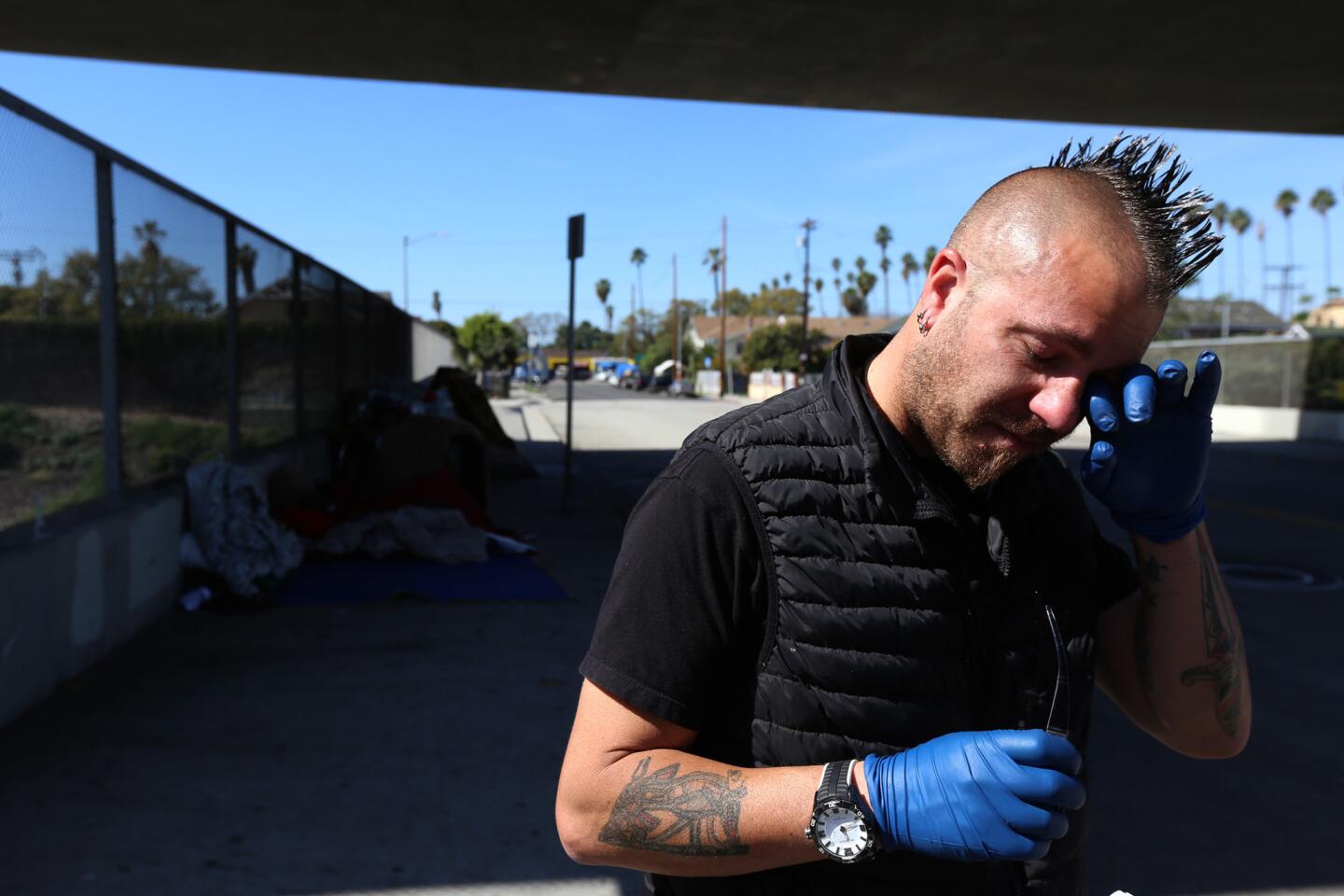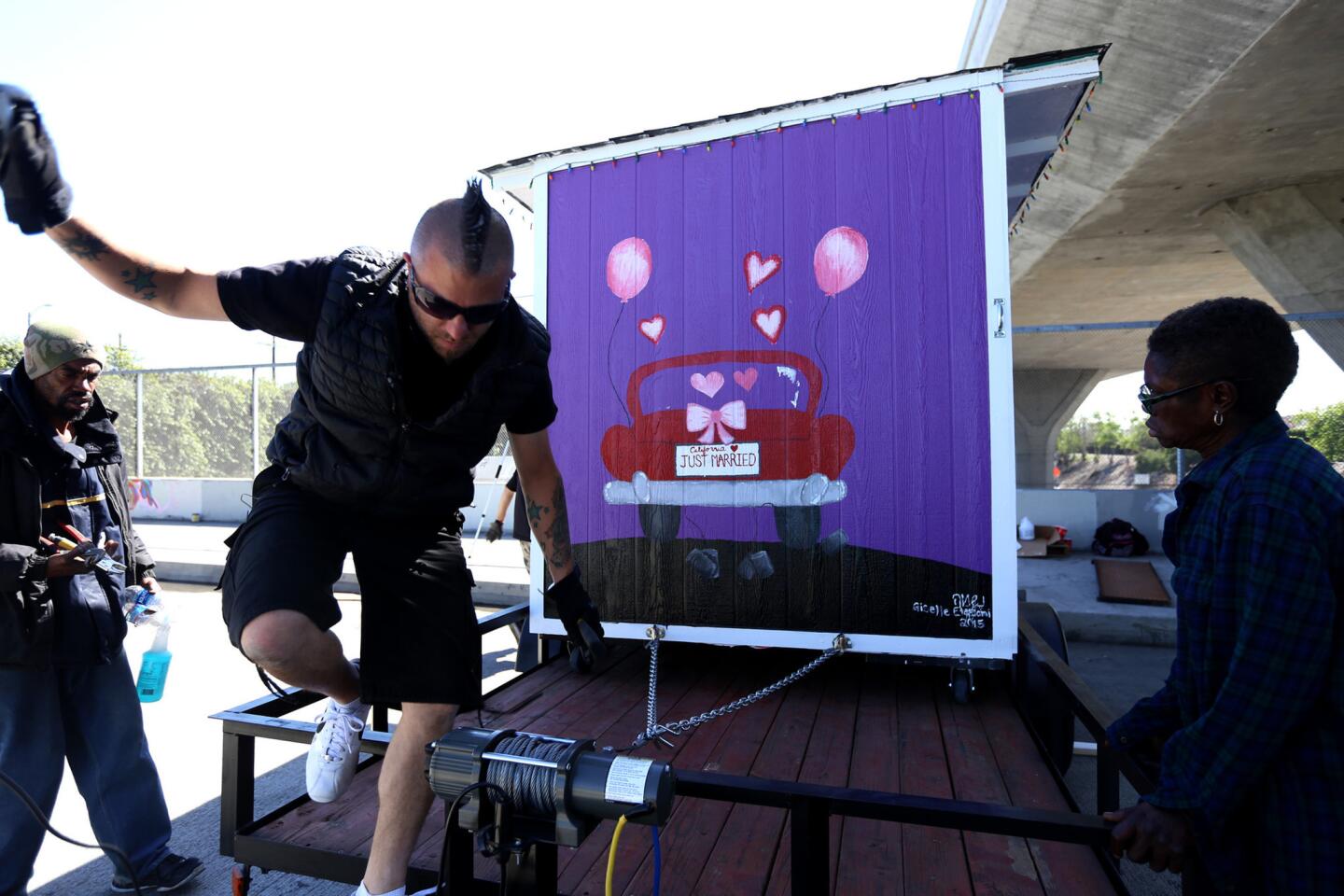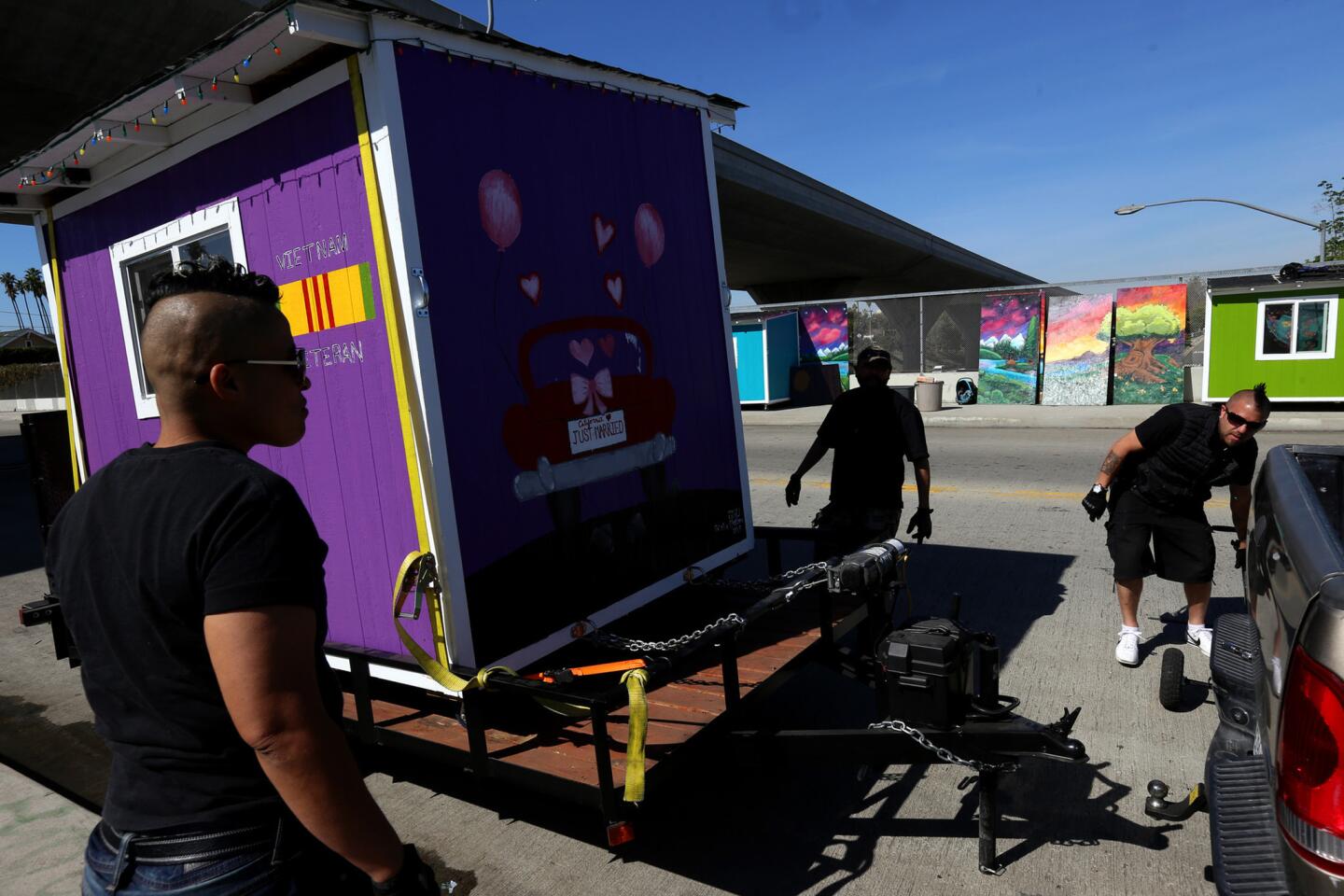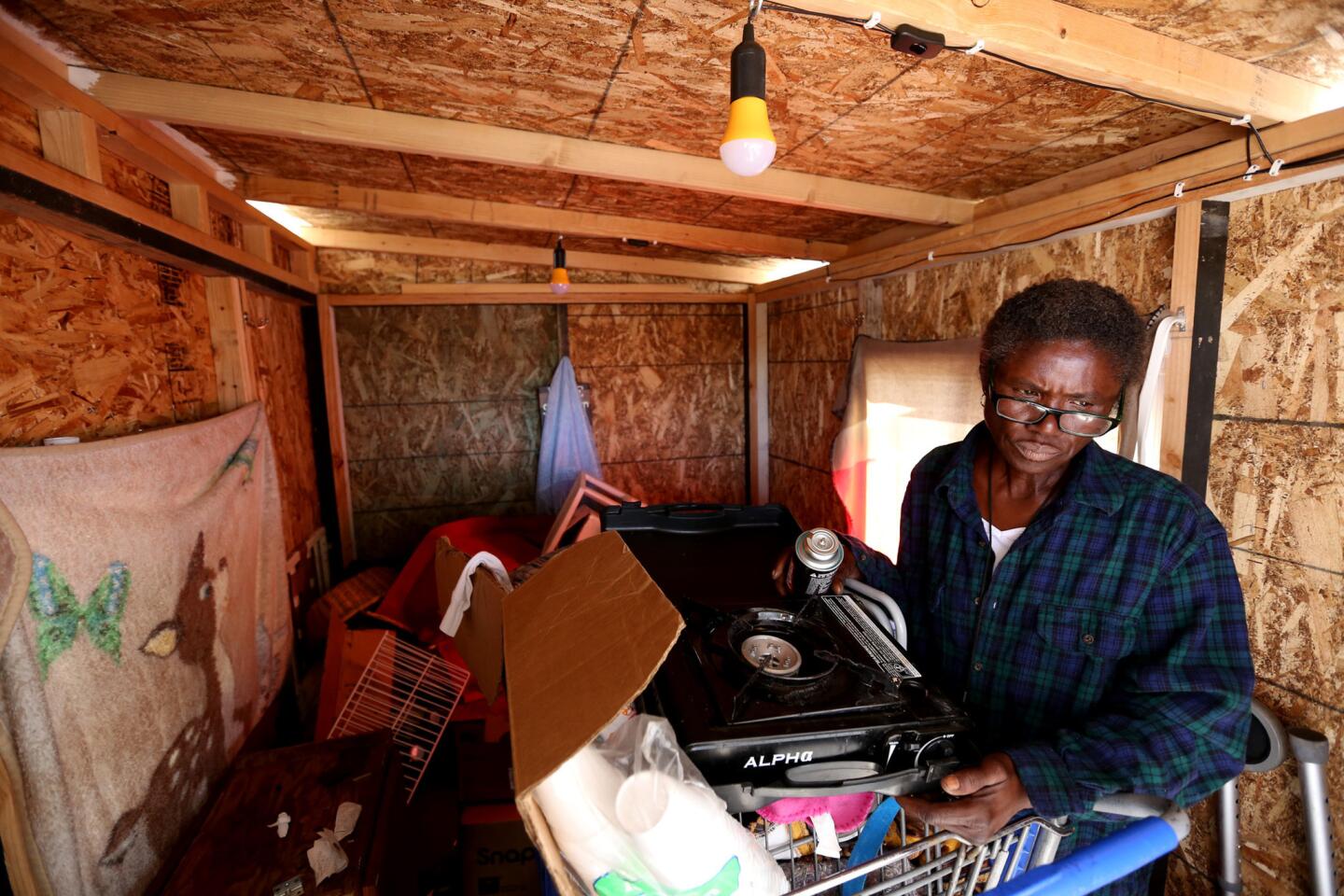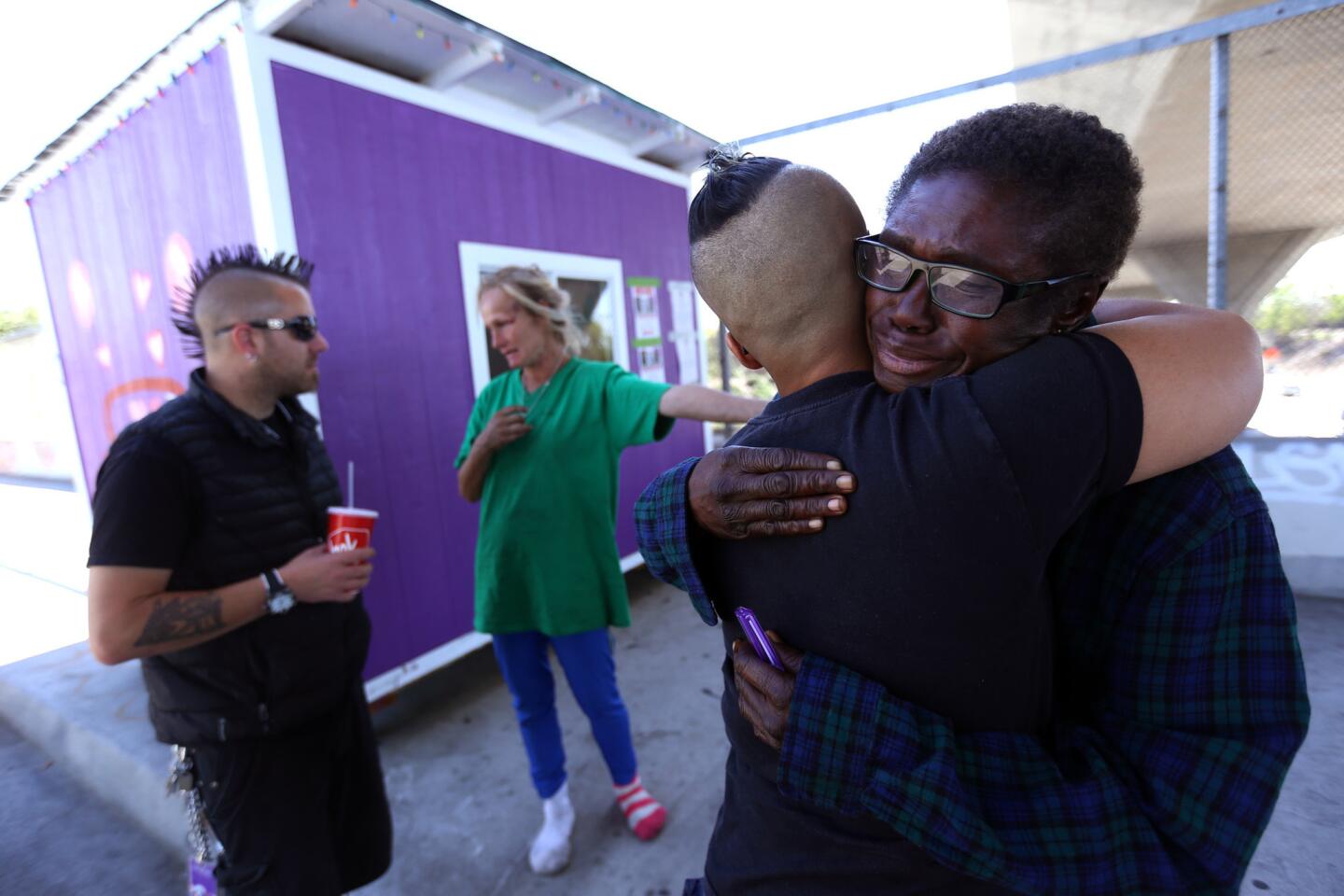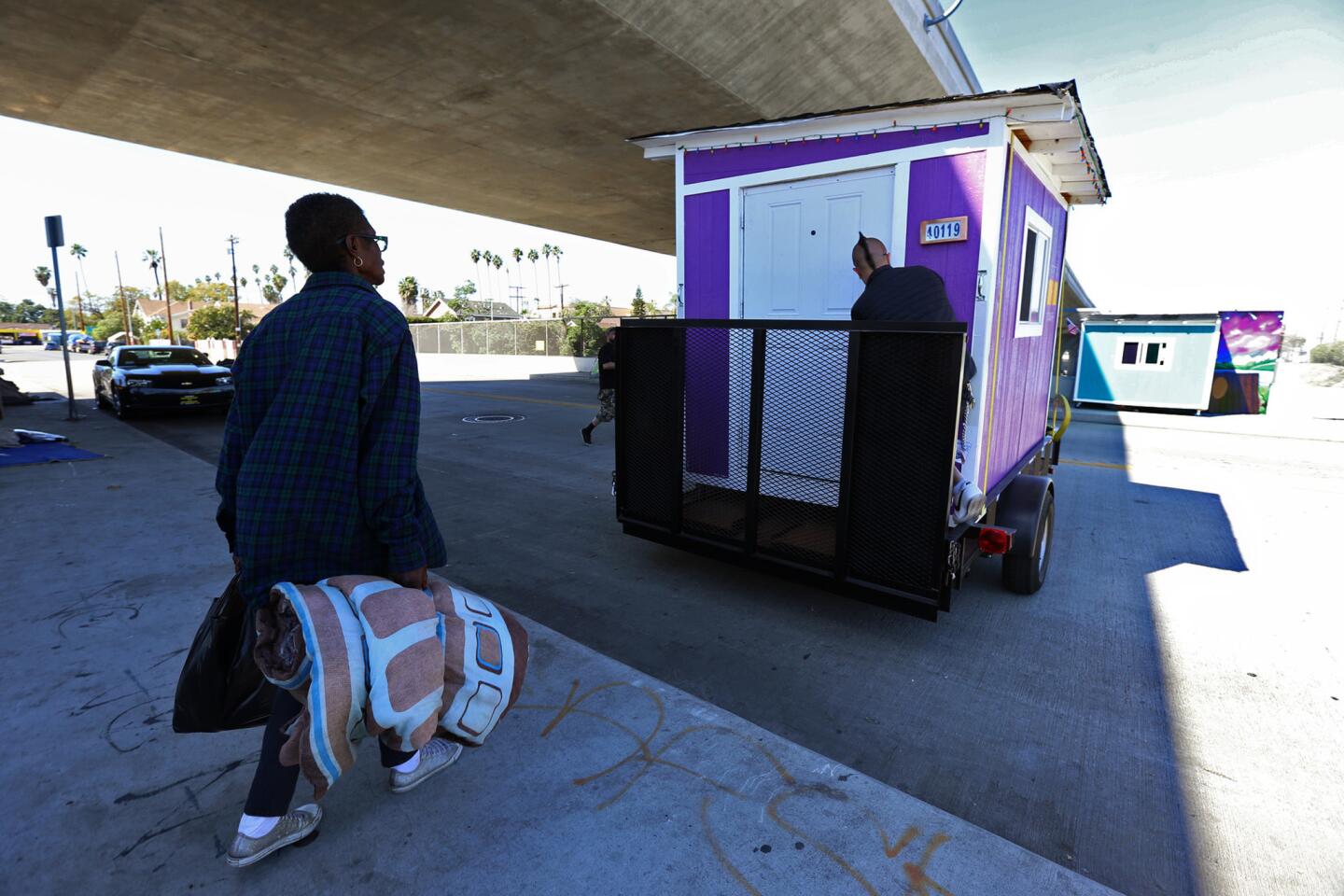L.A. is seizing tiny homes from the homeless

Escalating their battle to stamp out an unprecedented spread of street encampments, Los Angeles city officials have begun seizing tiny houses from homeless people living on freeway overpasses in South Los Angeles.
- Share via
Escalating their battle to stamp out an unprecedented spread of street encampments, city officials have begun seizing tiny houses from homeless people in South Los Angeles.
Elvis Summers, who built and donated the structures, removed seven of the gaily painted wooden houses — which come with solar-powered lights and American flags — on Wednesday and Thursday ahead of a scheduled city sweep.
Summers, an L.A. resident who says he was once homeless, had placed them within encampments on overpasses along the 110 Freeway, for homeless people to use instead of tents.
But three structures impounded earlier this month remain in a city storage lot, a Bureau of Sanitation spokeswoman said, and the city notified occupants they would be “discarded.”
“These people are beaten down so hard, you give them any opportunity to be normal, it lifts them up,” Summers said.
Councilman Curren Price, who represents the neighborhood, said the houses pose serious health and safety risks.
“I’m getting complaints from constituents who have to walk in to the streets to avoid them,” Price said.
Authorities destroyed needles, drug setups and a gun seized from one or more of the houses and tents during an earlier cleanup.
Some advocates for the homeless see the single-story structures — about the size of garden shed — as a cheap and safer alternative to having the homeless sleep on the sidewalks.
Neighbors and other opponents, however, say they provide cover for lawlessness and criminal activity.
“They are only homes for prostitution, shooting up, smoking up,” said June Ellen Richard, 54, who has lived all her life within blocks of one of the freeway overpasses where the tiny houses were parked.
Mayor Eric Garcetti’s spokeswoman, Connie Llanos, said he is committed to getting homeless people into permanent housing and services.
“Unfortunately, these structures can be hazardous to the individuals living in them and to the community at large,” Llanos said in a statement.
“When the city took the houses, they didn’t offer housing, they straight kicked them out,” Summers said.
The tiny house crackdown came as the city continues to struggle to balance enforcement with housing and other aid for the burgeoning homeless population.
The city passed a tough new sweeps ordinance that identified tiny houses as “bulky items” subject to immediate confiscation. More than 30,000 people sleep on the streets in Los Angeles County.
Although the city also adopted a plan to end homelessness over the next decade, officials have not identified a source for money to tackle the $2-billion problem.
Summers said he has built and placed 37 tiny houses from Van Nuys to Inglewood, with help from volunteers and more than $100,000 in donations from people around the world drawn to his online video campaign.
“It’s not a permanent solution, but nobody is doing anything for shelter right now,” said Summers, who added that the houses should default to him rather than be destroyed. “They keep just saying we need permanent housing, but it never happens.”
Price said there are alternatives including shelters, but that people in the tiny houses reject them.
Kenner Jackson, who lives in a tiny house with his wife, Becky, and terrier, Cowboy, said officials were “taking houses from people who need them right now. ... Their plan isn’t anything.”
Jackson said the city hauled away homeless people’s possessions while leaving bulky items like mattresses and chairs that residents dump next to the freeway.
Johnny Horton, 60, whose heavily bandaged legs were scored with wounds from uncontrolled diabetes, wept silently Wednesday as he contemplated going back to sleeping in the street.
“Laying on that tent on the sidewalk, it’s impossible to keep clean,” Horton said. He said the staff at the Los Angeles County-USC Medical Center, which discharged him Tuesday, said they’d try to get him housing, but it would take one to three months.
“I grew up in this neighborhood,” Horton said.
Posted on Julia Briggs Cannon’s tiny house next to the city impound notice were several fliers seeking the whereabouts of her husband, Larry Joe Cannon.
Cannon, 58, said her husband, a Vietnam-era Marine veteran with post-traumatic stress disorder and memory loss, was hospitalized with a seizure Feb. 5, then disappeared.
Larry Joe Cannon turned up Friday, but the couple’s house was gone. As Summers drove off with her house on a flatbed trailer, Julia Cannon sat on a thin bedroll on the ground and pointed to the concrete.
“I’m staying right here,” she said, her eyes filling with tears.
Twitter: @geholland
MORE LOCAL NEWS
Unlikely bond forms between O.C. jail escapee and his hostage
CarMax salesman killed during test drive; suspect allegedly on prescription drugs
Prosecutors decline to charge man held in killing of 1-year-old Autumn Johnson
More to Read
Sign up for Essential California
The most important California stories and recommendations in your inbox every morning.
You may occasionally receive promotional content from the Los Angeles Times.
